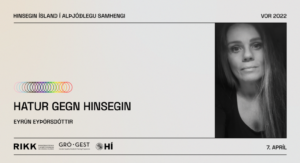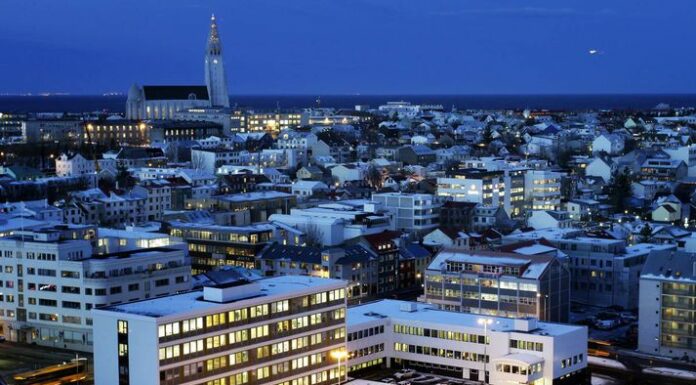Queer Iceland in an International Context is the name of a series of lectures by Eyrún Eyþórsdóttir, where she talks about LGBTQ+ people’s experience of hate crimes, also counting hate speech and discrimination due to sexual orientation and gender identity.
In the lecture, Eyrún cites data from her study. She has a doctor’s degree in Anthropology from the University of Iceland and is an assistant professor (Ice. lektor) in Police Science at the University of Akureyri.
The lecture is named „Hate against queer“ and was hosted on April 7th in a lecture hall in The National Museum of Iceland. It revolves around ongoing research on hate crime in Iceland.
In the lecture, Eyrún says: „Sexual orientation and gender identity are among the things that are protected by criminal law in Iceland. The protection is in place by order of law because queer people, along with other minorities, are at more risk of being the victims of hate crime than other people. In other words, hate crime is almost exclusively committed against persons with a minority background.
The Canadian scholar, Barbara Perry, has especially emphasized talking about hate crime as a way for certain groups in society to marginalize and exclude other groups, and by that maintain their power and apply themselves against minorities fight for rights.
Compared to other nations, Iceland has come far when it comes to LGBTQ+ people’s rights and their position is generally considered good.
Despite that, queer people’s stories of hate crime against them are often published in the media. Little is known about hate crime against queer people in Iceland and therefore the amount and frequency of those crimes is not known.“
The goal of the study is to shed light on hate crime in Icelandic community, how these crimes appear, who are the most common victims of such crimes and what the main consequences are.
The lecture by Eyrún Eyþórsdóttir has been held in collaboration with RIKK – Research Institution in Equality Studies and the School of Equality (GRÓ-GEST) in the spring semester of 2022.
Further information on the lecture series can be found at the website of RIKK – rikk.hi.is

This article was originally published in Icelandic by Salome Friðgeirsdóttir.





